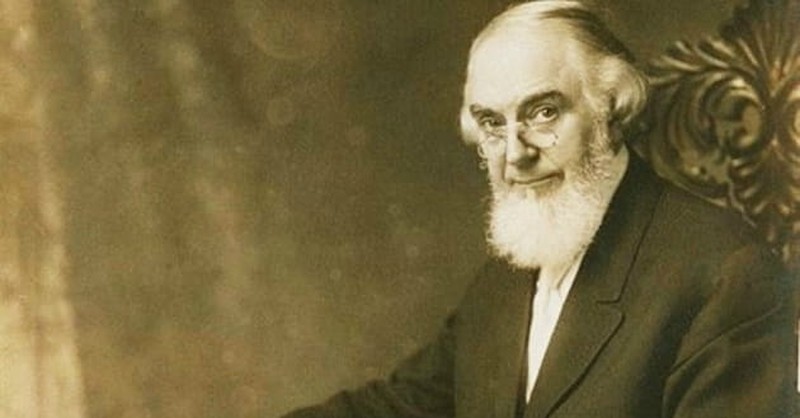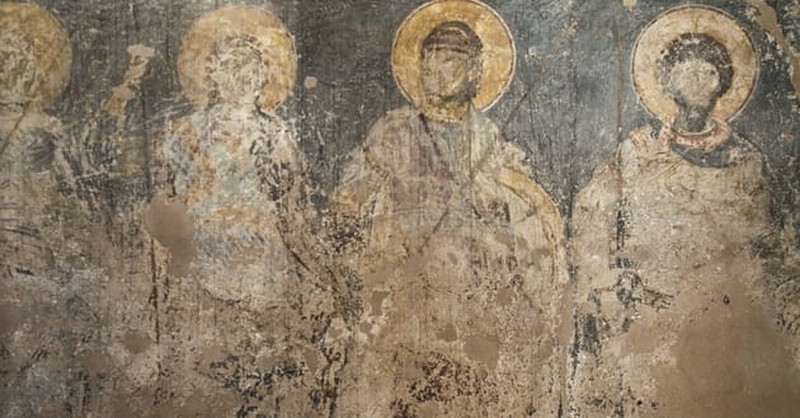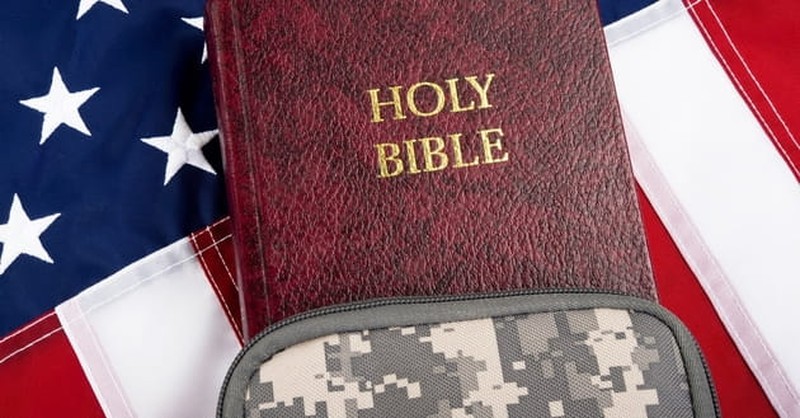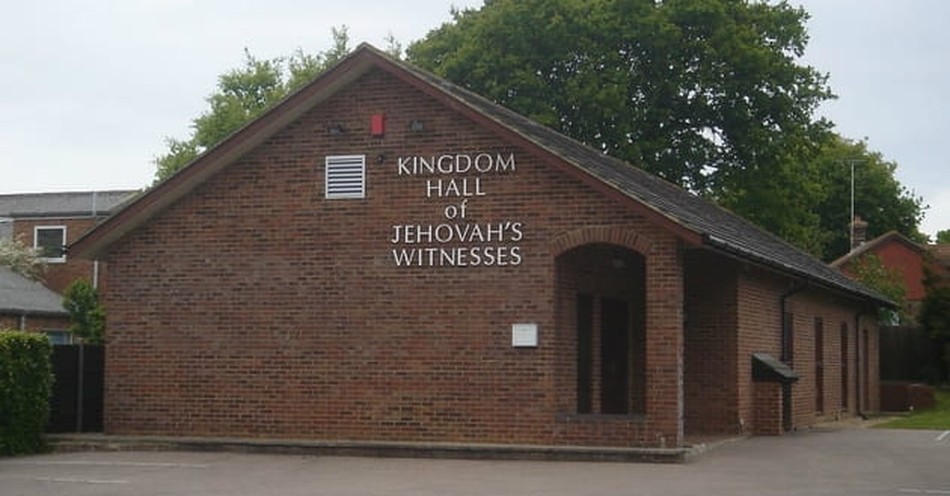Jehovah's Witnesses are a people of faith that many of us likely don't know much about. We may remember them as the people who often come to our homes to evangelize, but do we actually know what they believe?
Below is an overview with ten facts about the Jehovah's Witnesses, which branched off from mainline Christianity in the late 1800's. We'll explain how they began, the main beliefs of Jehovah's Witnesses, and how many people follow this faith worldwide.
Photo courtesy: Wikimedia Commons

1. When were the Jehovah's Witnesses founded?
Jehovah's Witnesses started in 1870 when a man named Charles Taze Russell led Bible studies in Pittsburgh, Pennsylvania. The Jehovah's Witnesses movement emerged from the Bible Student movement, founded by Taze. When Taze started disputing some of the traditional views within Christianity, he gave birth to the Jehovah's Witnesses.
During his ministry, Russell quarreled with many tenets of mainstream Christianity, including immortality of the soul, hellfire, predestination, the fleshly return of Jesus Christ, the Trinity, and the burning up of the world.
In 1876, Russell met Barbour. They collaborated on a book called Three Worlds. The book discussed the restoration of things and predicted the end of time.
After Russell's death in 1916, Joseph Franklin Rutherford (1869-1942) became the leader of the Jehovah's Witnesses.
Rutherford, born in Versailles, Missouri, grew up in a poor farming family. From an early age, he was interested in law and studied law at the University of Missouri. After graduating from law school, he worked as a court stenographer, trial lawyer, and prosecutor.
In 1894, Rutherford became a member of the Bible Student movement. He was quickly promoted within the movement and became the Watch Tower Society president in 1917. As president, Rutherford changed the Watch Tower Society by making it more organized and aggressive in spreading its beliefs. He also introduced many new doctrines, including believing the world would end in 1925.
Rutherford further developed Russell's teachings, making the Jehovah's Witnesses more organized and centralized. He led the Jehovah's Witnesses from a small group to a large global denomination with millions of members. Rutherford died in 1942, and Nathan Homer Knorr succeeded him as president.
Knorr was born in Bethlehem, Pennsylvania, and was raised in a family of Jehovah's Witnesses. He was baptized as a Jehovah's Witness in 1921. In 1923, he volunteered at the Watch Tower Society's headquarters in Brooklyn, New York. He was promoted to factory manager in 1932 and director of the Peoples Pulpit Association (now the Watchtower Bible and Tract Society of New York, Inc.) in 1934.
As president of the Watch Tower Society, Knorr continued and expanded Rutherford's policies. He established the Watch Tower Bible School of Gilead (South Lansing, New York) to train missionaries and leaders, decreed that all the society's books and articles would be published in the King James Version of the Bible, and increased the emphasis on door-to-door preaching. He also oversaw the expansion of the Watch Tower Society's global operations.
Photo courtesy: Wikipedia

2. Where did Jehovah's Witnesses get their name?
Jehovah's Witnesses focus on God the Father, so their name is taken from the Tetragrammaton, written as YHWH or JHVH and articulated either as Yahweh or Jehovah. The group was initially called the Watch Tower Society because founder Charles Taze Russell published Zion's Watch Tower and Herald of Christ's Presence magazine.
According to their website, "Jehovah is the personal name of God, as found in the Bible. (Exodus 6:3; Psalm 83:18) A witness is a person who proclaims views or truths of which he is convinced."
Photo courtesy: Wikimedia Commons

3. Do Jehovah's Witnesses use the same Bible as Christians?
Jehovah's Witnesses use a Bible translation called the New World Translation. Before this translation was released specifically by and for Jehovah's Witnesses, most relied on the King James Version. According to TowerWatch.com:
"The New World Translation of the Bible is Jehovah's Witnesses' own translation, no other religious group uses this Bible and Jehovah's Witnesses make very little use of other Bibles.
The translators of The New World Translation were: Nathan Knorr, Albert Schroeder, George Gangas, Fred Franz, and M. Henschel."
Photo courtesy: ©Thinkstock/B-C-Designs

4. Do Jehovah's Witnesses believe in the Trinity?
The answer to this is no, Jehovah's Witnesses do not believe in the Trinity. It is one of the major ways in which Jehovah's Witnesses differ from various Christian denominations. They hold a unique theological position that rejects the traditional Christian understanding of the Trinity as the belief in one God in three persons: Father, Son (Jesus Christ), and Holy Spirit. Instead, Jehovah's Witnesses believe in a unitarian view of God, where God is considered a single divine entity and not a triune being.
Jehovah's Witnesses refer to the fact that the Bible never explicitly mentions the term "trinity." They claim this "doctrine developed gradually over several centuries and through many controversies."
According to Jehovah's Witness theology:
God: They believe in one God, Jehovah, who is the Creator and Sovereign Ruler of the universe.
Jesus Christ: Jehovah's Witnesses believe that Jesus Christ is a separate and distinct created being, not co-equal or co-eternal with God. They view Jesus as the first and highest creation of Jehovah and consider him the Son of God.
Holy Spirit: They believe that the Holy Spirit is not a person but is God's active force or power that He uses to accomplish His purposes.
Photo courtesy: ©Thinkstock/luchschen

5. What do Jehovah's Witnesses believe about Jesus?
Jehovah's Witnesses believe that Jesus is not equal to God. They teach that Jesus was created by God and not coexistent with Him. This, of course, is a major diversion from orthodox Christianity.
JW.org explains, "[W]e take Jesus at his word when he said: 'The Father is greater than I am.' (John 14:28) So we do not worship Jesus, as we do not believe that he is Almighty God."
Identity of Jesus: Jehovah's Witnesses believe that Jesus Christ is a created being and is not co-eternal or co-equal with God the Father. They consider Jesus to be the first and highest creation of Jehovah God. They do not believe in the traditional Christian doctrine of the Trinity, which teaches the deity and co-equality of Jesus with God.
Son of God: Jehovah's Witnesses acknowledge Jesus as the Son of God, but they emphasize his subordinate role to God the Father. They do not believe that Jesus is part of a triune Godhead but rather a separate and distinct individual created by God.
Messiah and Savior: Jehovah's Witnesses believe that Jesus was the promised Messiah (Christ) and that he came to earth to fulfill God's plan for salvation. However, they do not believe in the doctrine of the atonement as taught in mainstream Christianity, where Jesus' death on the cross provides atonement for humanity's sins.
Life and Ministry: Jehovah's Witnesses accept the accounts of Jesus' life and teachings as recorded in the New Testament, particularly in the Gospels. They emphasize his moral teachings and his role as a model for their own lives.
Resurrection: Jehovah's Witnesses believe that Jesus was resurrected from the dead, but they do not believe in the bodily resurrection. Instead, they teach that Jesus was resurrected as a spirit creature and that his physical body was disposed of by God.
Second Coming: Jehovah's Witnesses believe in the second coming of Jesus, which they refer to as his "presence." They believe that he returned invisibly in 1914 and is currently ruling as king in heaven, directing the activities of Jehovah's Witnesses on earth.
Photo courtesy: ©Thinkstock/kevinschreiber

6. What do Jehovah's Witnesses believe about the Holy Spirit?
Similar to their view of Jesus, Jehovah's Witnesses do not believe the Holy Spirit is equal to the Father. They instead believe the Holy Spirit is a force applied by God.
They claim that the Holy Spirit is "impersonal": "By referring to God’s spirit as his 'hands,' 'fingers,' or 'breath,' the Bible shows that the holy spirit is not a person. (Exodus 15:8, 10) A craftsman’s hands cannot function independent of his mind and body; likewise, God’s holy spirit operates only as he directs it. (Luke 11:13) The Bible also compares God’s spirit to water and associates it with such things as faith and knowledge. These comparisons all point to the impersonal nature of the holy spirit." Their beliefs about the Holy Spirit can be summarized as follows:
Nature of the Holy Spirit: Jehovah's Witnesses do not believe in the traditional Christian doctrine of the Trinity, which teaches that the Father, Son (Jesus Christ), and Holy Spirit are co-equal and co-eternal persons within one Godhead. Instead, they view the Holy Spirit as an impersonal force or active power of Jehovah God, rather than a distinct person.
Role of the Holy Spirit: Jehovah's Witnesses believe that the Holy Spirit is not a person but is used by God to accomplish His purposes. They do not attribute personal qualities, consciousness, or independent agency to the Holy Spirit.
Inspiration of Scripture: Jehovah's Witnesses acknowledge that the Bible is inspired by God, but they believe that the Holy Spirit's role in inspiration is different from mainstream Christian beliefs. They view the Holy Spirit as God's active force that influenced the human writers of the Bible, guiding them in their writing without having a personal role in the process.
Guidance and Illumination: Jehovah's Witnesses believe that the Holy Spirit helps individuals to understand and apply the Bible's teachings. They see the Holy Spirit's role as providing understanding and insight into God's Word.
Baptism and Anointing: In Jehovah's Witness theology, the Holy Spirit is involved in the process of anointing a select group of individuals who are believed to be the "anointed class." These individuals, numbering 144,000 according to Jehovah's Witness beliefs, are considered to have a special heavenly calling and are anointed with Holy Spirit.
Photo courtesy: ©Thinkstock/RomoloTavani

7. Do Jehovah's Witnesses celebrate holidays?
Jehovah's Witnesses don't celebrate Christmas or Easter, which makes sense when you remember that they don't believe Jesus is equal to God. They also don't celebrate other national holidays or birthdays in an attempt to remain separate from the world.
Photo courtesy: ©Thinkstock/AlexRaths

8. What do Jehovah's Witnesses believe politically?
Jehovah's Witnesses try to remain politically neutral. They don't believe in serving in politics or in the military, mainly as another way for them to distance themselves from the culture. Instead, they emphasize citizenship in God's heavenly kingdom.
"Jehovah’s Witnesses remain politically neutral for religious reasons, based on what the Bible teaches. We do not lobby, vote for political parties or candidates, run for government office, or participate in any action to change governments. We believe that the Bible gives solid reasons for following this course," states JW.org.
Photo courtesy: ©Thinkstock/mj0007

9. What do Jehovah's Witnesses believe about medical help?
Jehovah's Witnesses hold the controversial view of rejecting blood transfusions, even in life-or-death situations. Recently, Russia banned Jehovah's Witnesses and this issue was one of the reasons for their doing so.
"Some treatments conflict with Bible principles, though, and we reject these. For example, we don’t accept blood transfusions because the Bible forbids taking in blood to sustain the body. (Acts 15:20) Likewise, the Bible prohibits health treatments or procedures that include occult practices.—Galatians 5:19-21," explains JW.org.
Photo courtesy: ©Thinkstock/NexTser

10. What Do Jehovah's Witnesses believe about Salvation?
To attain salvation, Jehovah's Witnesses must live in accordance with the teachings of the Watchtower Society, which includes door-to-door evangelism, following moral and ethical standards, and active participation in the Jehovah's Witness community.
The majority of Jehovah's Witnesses hope for salvation in a restored paradise on Earth. They believe that God's original purpose for humanity was to live forever in a paradise on Earth, and this purpose will be fulfilled in the future. Those with the earthly hope believe that only a limited number of 144,000 individuals, known as the "anointed class," will go to heaven to rule with Christ. The rest of faithful Witnesses will be resurrected on Earth and will have the opportunity to live in a restored paradise after Armageddon.

11. How many Jehovah's Witnesses are there today?
According to the Jehovah's Witness official website, there are 8,699,048 Jehovah's Witnesses worldwide as of March 31, 2023. This number includes both baptized members and those who are not yet baptized but are actively participating in the organization's activities.
The majority of Jehovah's Witnesses live in the Americas, with the United States having the largest number of members. Other countries with a significant number of Jehovah's Witnesses include Mexico, Brazil, and the Philippines. Jehovah's Witnesses rely on their door-to-door preaching to grow converts.
Photo courtesy: Wikimedia Commons
This article is part of our Denomination Series listing historical facts and theological information about different factions within and from the Christian religion. We provide these articles to help you understand the distinctions between denominations including origin, leadership, doctrine, and beliefs. Explore the various characteristics of different denominations from our list below!
Mormons: The Church of Latter Day Saints & Their Beliefs
Baptist Church: History & Beliefs
Presbyterians: History & Beliefs
Mennonites & Their Beliefs
United Methodist Church: History & Beliefs
Seventh-Day Adventists & Their Beliefs
The Pentecostal Church: History & Beliefs










